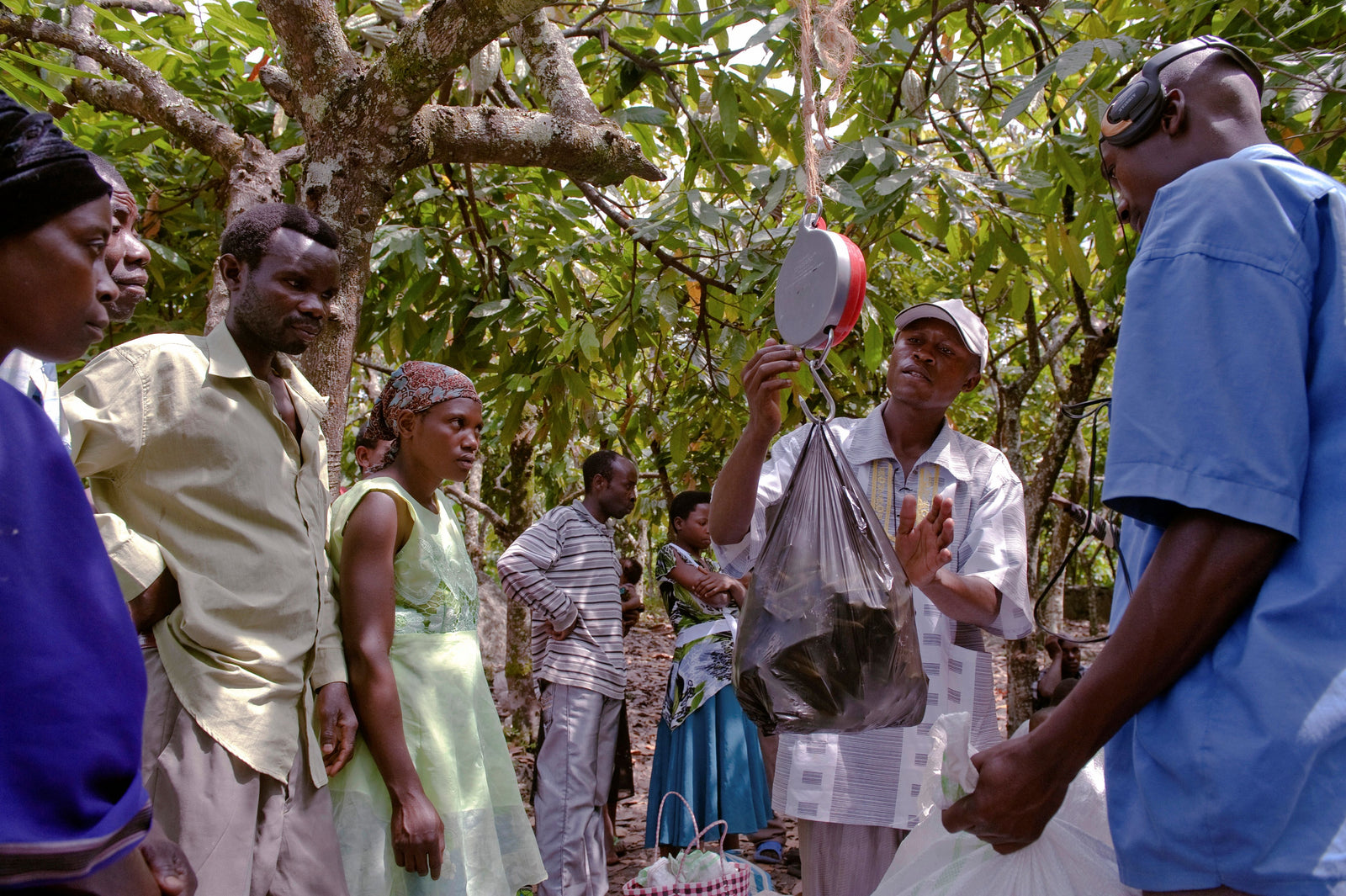The Lush team posed two questions to Ndali Vanilla founder, Lulu Sturdy; the answers help clarify from a business perspective some of the confusion surrounding what buying Fairtrade means
– What made you undertake the decision to go 100% Fairtrade?
Its not a 'decision', you can't just go 100% Fairtrade as you call it, because its extremely rare to be able to sell all your product at Fairtrade prices - the world market has often been unwilling to pay the sometimes up to fives times more for Fairtrade vanilla (as was the case in 2007): this is because the conventional or market-driven price (ie non-Fairtrade) was way below break-even for farmers between 2007 and 2012 - a crazy price which forced many to abandon the crop over those six years because it wasn’t making economic sense.
So the worse the current conventional price for vanilla, the bigger the gap between conventional and Fairtrade prices; if conventional prices begin to rise, then this gap begins to close and more buyers may be tempted to switch to Fairtrade.
But many manufacturers just look at the bottom line and say, ah well your vanilla is three times the price of that of what I can get elsewhere, so they go elsewhere... they simply don't think forward about continuity of supply or quality; it doesn't cross their minds what is going on in the country of origin or the absurdity of producing a crop at a loss, so long as they can get it at the best rate - for instance there's a whole section of the food catering industry that's like this.
But the good news is, amazingly, there are some companies which do care about these issues. So Ndali's policy was to focus on these companies and try and work with them, right from our beginnings as a vanilla exporter, in 2003.
We focused on the Fairtrade market because it was the only thing that made sense to me: isn't it natural to want to work with happy people, and find the most harmonious working relationship with your suppliers? If you were surrounded by poverty, but you had access to doorways no one else could approach, wouldn't you do your utmost to open those doorways, however slow progress might be?(Bec you could put this as a quote from these bold words, or if it looks too long, take the next sentence? And still maintain the same sentence in the body text) We are tied to our farmers with an umbilical cord: if they suffer, we suffer; if we suffer, they suffer. Actually all business is like this, its just that strangely many people ignore it. So by going Fairtrade I chose the route that was most natural to me, and one which on a practical level was able to offer huge background support.
The important thing to realise is that for a very long time we were only ever able to sell 20-35% of Rwenzori Farmers’ crop as Fairtrade - for the reasons mentioned above - but the outstanding thing about the new contract with Lush Cosmetics is that they came in overnight and more than doubled our volumes of Fairtrade, so that we are able to buy 100% of the farmers crop at Fairtrade prices. Never have I known a company to take such a vote of confidence without tying themselves up in large amounts of red tape and meetings. The decision was made in a matter of hours and the most striking thing that hit me was that it came from the heart of Lush's founders to want to work in the best possible way and had nothing to do with trends, fashions and marketing tools. It was all heart and passion and common sense in a way that quite blew me away.
– How is the Fairtrade price calculated?
Around the Mountains of the Moon it takes five to seven years to break even with a vanilla crop. Farmers’ plantations are tiny – averaging 250 vines on a half acre – as vanilla thrives best as small-scale agro-forestry, needing large amounts of tender loving care in training, pruning, mulching and hand pollinating.
Fairtrade takes all this into consideration when calculating the Fairtrade price: capital costs, annual costs to maintain and harvest the crop and expected yields are analysed to give a price which covers these plus a fair profit margin. This price stability inspires the confidence to produce vanilla of exceptional quality, provided there is ongoing communication, exchanges and ideas sharing between us and the farmers.
– So do you think that Fairtrade farming gives an incentive to produce a higher quality product?
Absolutely - quality comes because Ndali works almost like another hip of the farmers, we are in contact with them on an almost daily basis, involved in trainings and projects and different support funds and quality enhancement starting with the very root of the vanilla vine - this isn't usually the case with trading partnerships: you see your supplier once or twice a year when you need produce and that's it. Our motive is to produce some of the strongest vanilla in the world; we enthuse the farmers with this motive; they really get it.

Delving Deeper into Fair Trade
Delving Deeper into Fair Trade
- by rukwanzi Admin
- July 25, 2023
- 4 min read